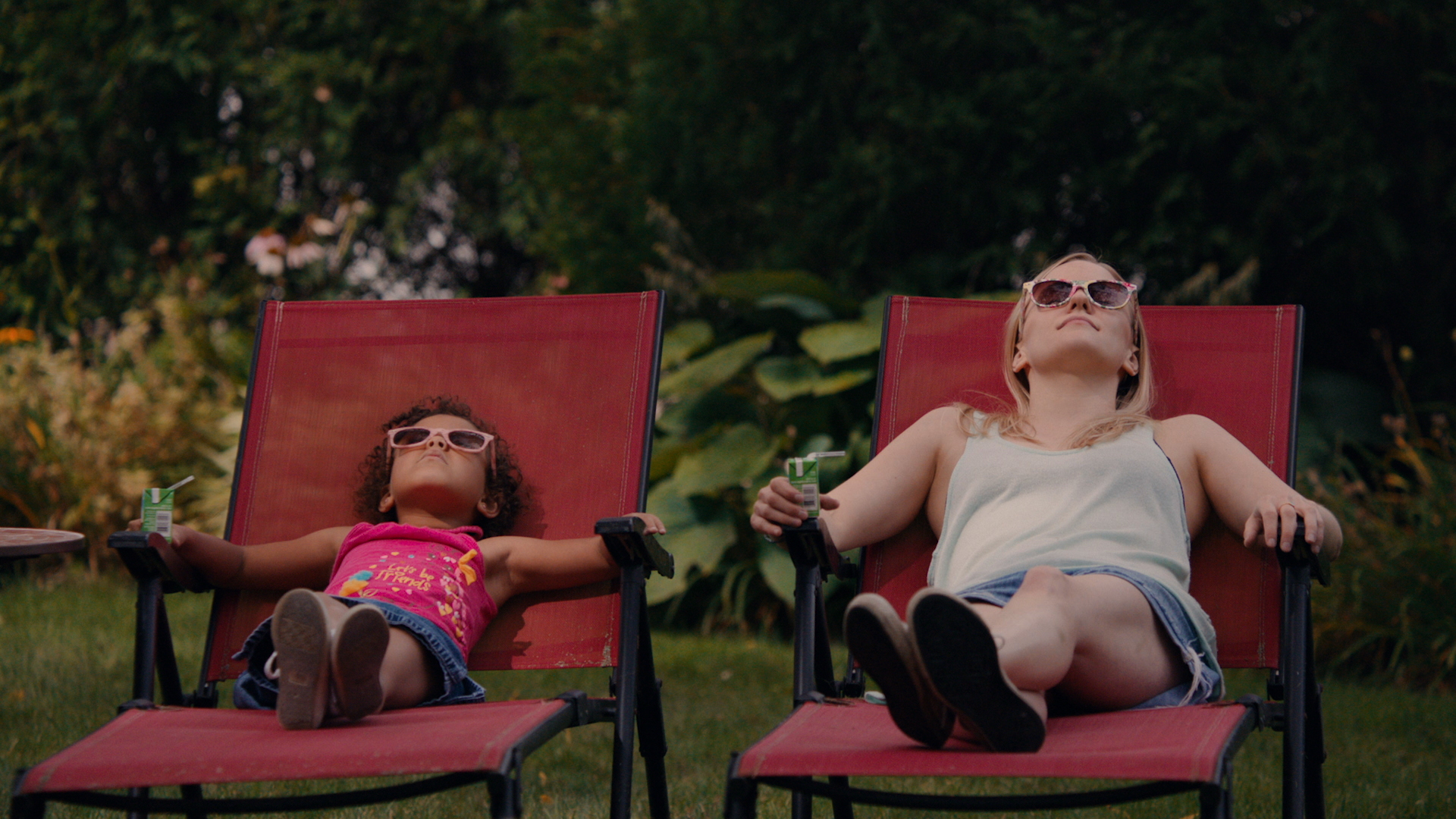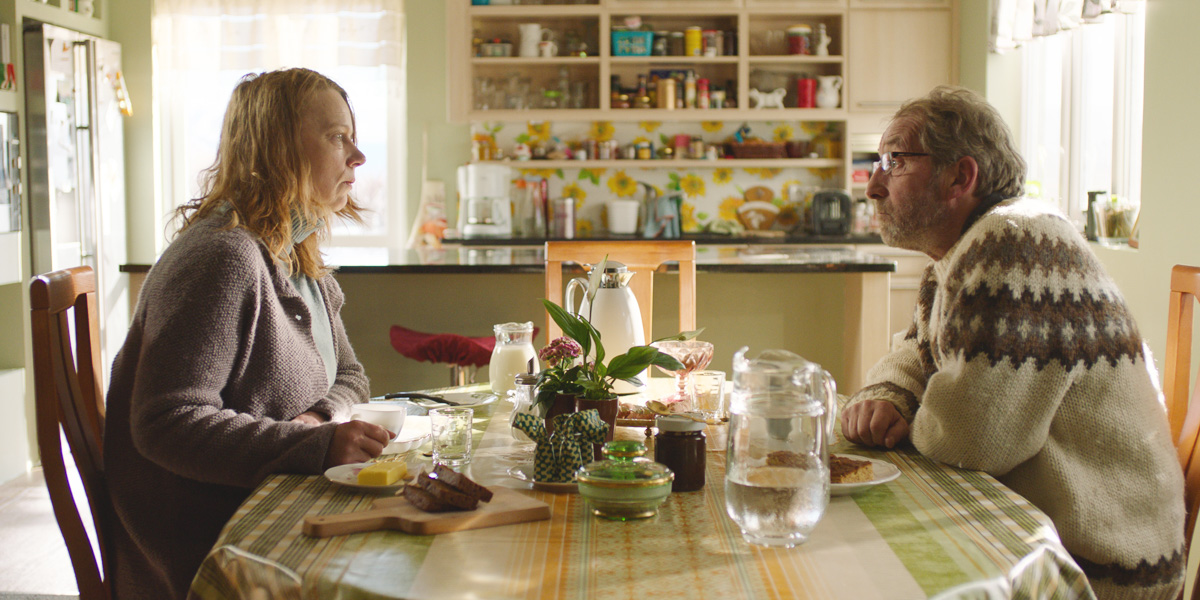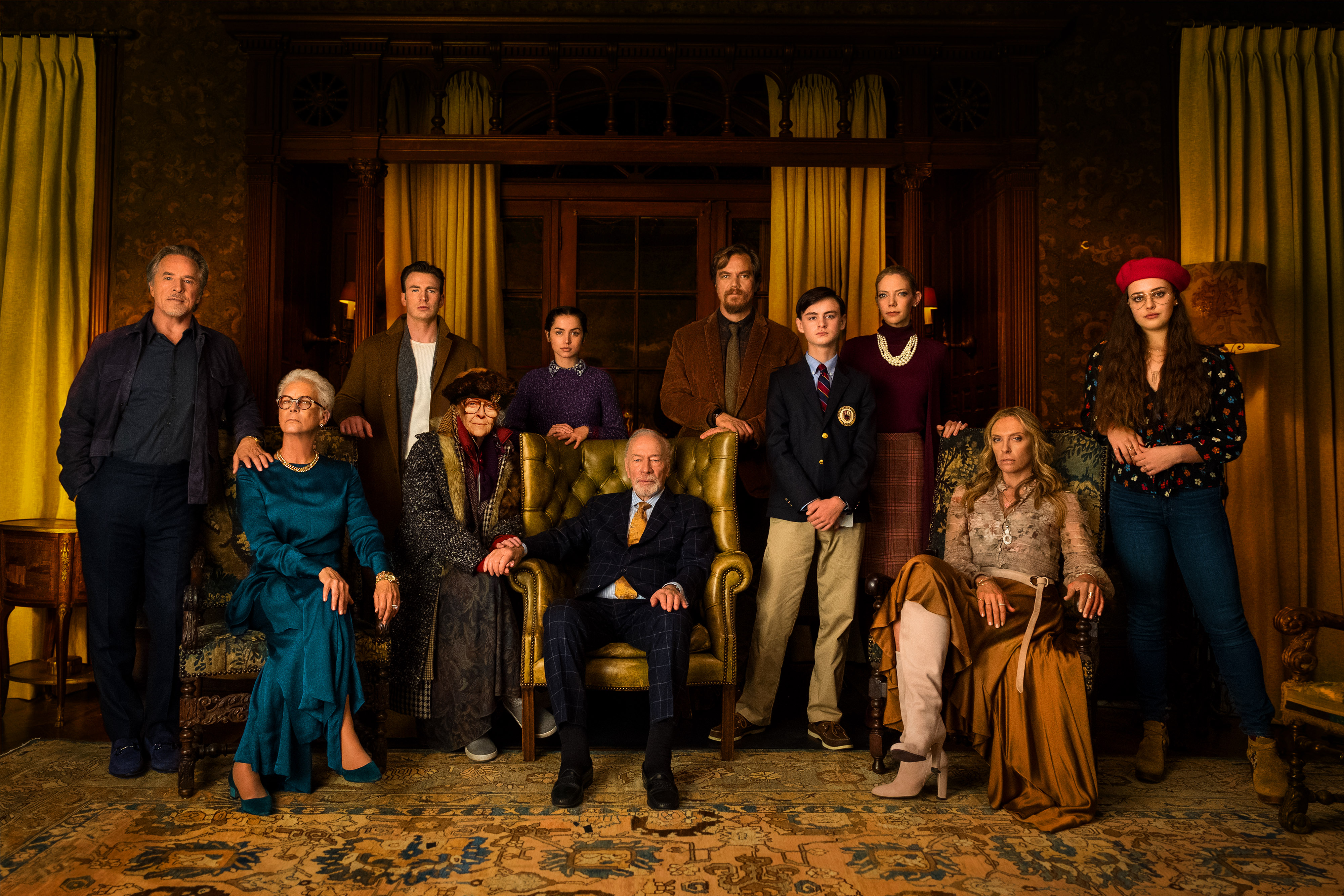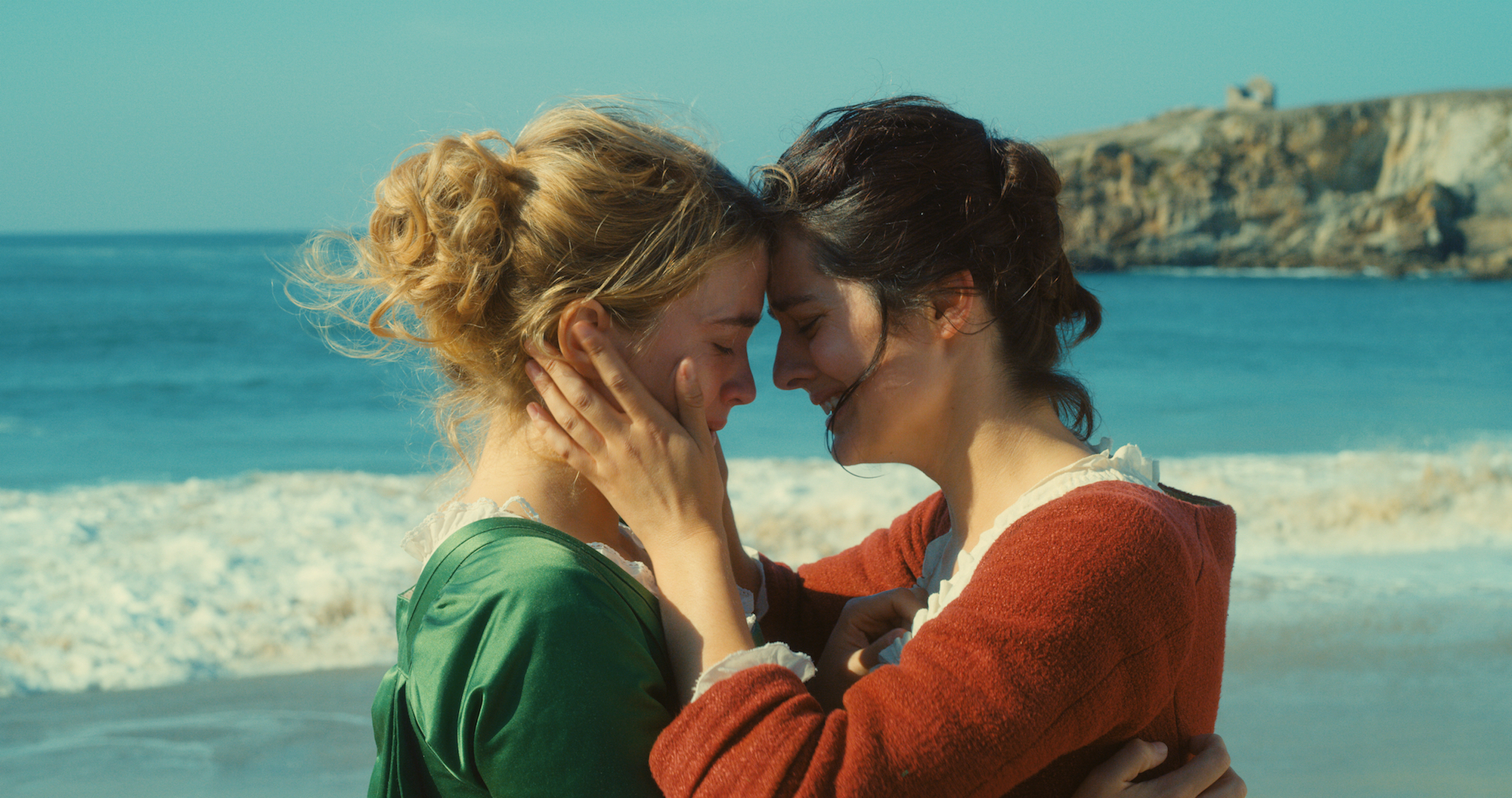For more than four decades now, the Denver Film Festival has brought world-class cinema to the Mile High City in a rare treat for cinephiles. For 11 days, films that range in popularity (and budget) from Blockbusters to DIY indies took over the screens at the Sie FilmCenter, the UA Pavilions and the Ellie Caulkins — offering viewers the opportunity to escape, cry, laugh and, most importantly, put themselves in someone else’s shoes for a while.
Here at 303 Magazine, we sent three writers to watch as many films as possible and come back with their favorites. Read on to find out which ones and where to watch them — now that the festival is over.
Portrait of a Lady on Fire
The quiet beauty of this film will linger in your life for weeks. Directed by Céline Sciamma, who won the Best Screenplay award at Cannes, Portrait of a Lady on Fire follows an 18th-century female painter who must paint a portrait of a reluctant bride-to-be on a secluded estate. The catch is that the bride-to-be must not know what the painter, Marianne, is doing because she will refuse to show her face. Through long walks along the ocean-side cliffs, guarded conversations, and secretive meetings in the forest, the two women find love and acceptance in unexpected places. There’s a gentle, delicate approach from the filmmaker Sciamma and both lead actresses that captures the new progressive movement of feminism in film — the lack of a strong male character. All of the strength necessary to move along the plot, the character development and the intrigue is done by women. Plus, Portrait of a Lady on Fire isn’t just about art, it is a piece of art itself. Long, pensive camera shots in silent rooms (except for the rustling of a dress or the scraping of brush to canvas) allow viewers to escape into the world of 18th-century painting as it was — an arduous process that required patience. This film is the love story that I’ve been waiting to see, even though I swore off romantic plotlines years ago. – Cori Anderson
Where you can watch it: Hulu will be streaming this film in North America soon
Saint Frances

This directorial debut from American filmmaker Alex Thompson is an honest, forthcoming and intimate film that follows a directionless 34-year-old server, Bridget, as she figures out some of life’s hardest problems. Most of the action takes place when Bridget accepts a job as a nanny for the six-year-old daughter of a professional lesbian couple, after having an unexpected pregnancy and abortion herself. Even though Saint Frances certainly falls into the category of one of those indie films where you follow someone around in their daily life without a discernable climax, there’s a poignant moment in the end that had even the hardest of sensibilities sniffling in the theater. Plus, it gets extra props for tackling a topic like abortion with a dignity and openness that I’ve never seen before. Saint Frances is raw but delectably edible, proving that Thompson is a director who doesn’t need millions of dollars to make a film worthy of praise and attention. – Cori Anderson
Where you can watch it: Keep an eye out on the movie’s website. For now, there are only screenings at other film festivals around the world.
The County

The stoic solitude of Icelandic cinema is perfectly represented in Grímur Hákonarson’s new film The County. Between wide pans of the stark and gorgeous Icelandic landscape and close-up portraits of a hardened dairy farmer and his no-nonsense wife, Hákonarson makes viewers feel the relentless battle between restlessness and peace found in rural living. But the best part of this film, and so many other Icelandic films I love, is that the strongest character is a woman. In this case, it’s Inga (played by Arndís Hrönn Egilsdóttir) the dairy farmer’s wife who decides to take on the local Co-Op after an accident leaves her with almost nothing. Even though some viewers might find the bleakness of this film offputting, it would be hard to deny that it’s honest and real. There is no Hollywood beauty acting as a dairy farmer, there is no glorious soundtrack or montages — instead, we must live through the eyes of Inga and her losses. And the result of that is that in the end, we feel Inga’s triumphs as well. – Cori Anderson
Where you can watch it: Currently it’s on the film festival circuit. Check back into this website for more details.
Knives Out

To make a movie that channeled the creative genius of crime novelist Agatha Christie — one of the world’s top selling authors of all time — Rian Johnson could’ve simply adopted one of her 66 detective novels, or any of the tales found in her 14 short story collections. With Knives Out, Johnson managed to produce an entirely original (and delightfully unpredictable) whodunit murder mystery that still embodies the best qualities of Christie’s work. Like the novels that inspired it, Johnson’s fast-paced and well-oiled screenplay is consciously detailed and yet void of miscellany — every glance, crumb, and drop has its own payoff. In addition, the plot of Knives Out is character-driven, producing its tensions and thrills through dialogue rather than special effects. In an interview with 303 Magazine, Johnson mused, “I think [Christie’s] characters — particularly her female characters — were all really well-drawn, and really interesting, and really engaged with the culture that she placed them in”. Knives Out’s female protagonist, Marta (Ana de Armas) — who is the daughter of an undocumented immigrant and the murder victim’s allied home nurse — certainly fits that bill.
Agatha Christie’s influence aside, the ultimate success of this film is its resistance to cynicism. Johnson managed to pull off a comforting and triumphant murder mystery for the whole family to see. It’s the most fun I’ve had in a movie theatre in a long time. – Josie Russell
Where you can watch it: Knives Out will hit theatres nationwide on November 27, with early access screenings occurring earlier in the week. You can find tickets in your area here.
Honey Boy

Honey Boy is art therapy for both Shia LaBeouf — who wrote and stars in this retelling of his childhood — and its viewers. This film begins with a 22-year-old version of a character named Otis Lort (a fictionalized stand-in for LaBoeuf) whose self-endangerment, run-ins with the law, and other unhealthy, escapist methods of repressing past trauma land him in rehab. From the therapist’s office at the rehabilitation center, the viewer is then transported into scenes from Otis’ preteen days as a child actor — when he lived with his abusive, drug-and-alcohol-addled father in a motel outside of Hollywood. Noah Jupe of A Quiet Place plays young Otis, while LaBeouf himself plays the complicated character he modeled after his own dad. While LaBeouf’s authentic performance of this role must’ve been cathartic on a meta-level, director Alma Har’el makes sure that the visual narrative is healing in and of itself. For example, the first scene featuring preteen Otis shows him struggling to unstrap himself from a harness used for an action stunt. He’s dependent on his dad — who’s too busy flirting with extras — to release him. We initially find 22-year-old Otis in a similar predicament — dangling in the air on his own on the film set of an explosion scene. Even in his adulthood, Otis still feels like his dad left him hanging, and now he must learn to let go. – Josie Russell
Where you can watch it: This film opens in Denver on Friday, November 22 at the Landmark Mayan and Century 16 in Boulder. Expect it to come to Amazon Video in early 2020.
I Lost My Body
I Lost My Body is the first feature-length animation ever to win the prestigious Critics’ Week Grand Prize at the Cannes Film Festival. Based on the French novel, Happy Hand, by Guillaume Laurant — who received an Academy Award nomination in 2002 for his screenplay of Amélie — this hand-drawn adult film spent over seven years in production. The result is mesmerizing, poignant and a little macabre. The French-subtitled narrative is largely from the point of view of a severed hand, who battles with beasts (pigeons, rats) and crosses dangerous terrain (escalators, subways) all in a quest to reunite with the rest of himself and rediscover the events that led up to its lopping-off. Director Jérémy Clapin pieces together this unconventional investigation like a puzzle, seamlessly transitioning between points of view and places in time in a way that’s breathtaking but never confusing.
The film’s fly-catching motif and the hand’s near-invisible, insect-like existence inevitably call to mind Kafka’s The Metamorphosis, another bizarre representation of the journey to self-discovery. Though the bittersweet I Lost My Body ends on a much more uplifting note than The Metamorphosis, I find that David Foster Wallace’s commentary on Kafka’s tale in his book, Consider the Lobster, encapsulates the message of this film quite nicely: “No wonder we cannot appreciate the really central Kafka joke: that the horrific struggle to establish a human self results in a self whose humanity is inseparable from the horrific struggle. That our endless and impossible journey toward home is in fact our home.” – Josie Russell
Where you can watch it: It will be available on Netflix beginning November 29.
Marriage Story
Marriage Story is extraordinary due to how much the plot relies on the ordinary. Following the disassembly of a marriage between Charlie (Adam Driver) and Nicole (Scarlett Johansson), writer/director Noah Bombauch plays with humor and reality in a way that pierces through the usual shield that we create to distinguish cinema and the world around us. Fresh, witty and heartbreaking, Marriage Story creates a world that feels a step too close to home, begging the question of whether or not cinema has to always rely on escapism to be worth watching. The resounding answer is in the character’s voices and in Driver and Johannson’s incredible performances — sometimes the best films are just about life itself and the challenges we often face through the years. The delicacy of the writing cannot be overstated, making for a film that relies heavily on chemistry and dialogue between the key players, alluding to decades of cinemas past when what was said was often as important or more important than what was seen. In a decade of movies like ours, this is a breath of fresh air. It is a reminder to us all that conversations between two people can sometimes be all you need to make an everlasting impact on screen. – Camila Biddulph
Where you can watch it: Marriage Story is premiering on Netflix on December 6.
Atlantics
Atlantics is Mati Diop’s directorial debut and points to monumental success for the burgeoning filmmaker. Following the disappearance of construction workers who went out to sea in search of a better life, the citizens of Dakar, Senegal start noticing supernatural occurrences that seem eerily tied to the lost workers. Told mainly through the lens of young Ada (Mame Bineta Sane), who lost her forbidden love Souleiman to the waves, the tale touches upon the role of women in Senegalese society and the working class woes that the inhabitants of the country experience. Never bold enough to spoon-feed these ideologies, Atlantics works because the director and writer allow the audience to draw their own conclusion. Backed by the cinematographic genius of Claire Mathon, the world they create is both detached from the tangible world and strikingly real. Drowning in melancholy, the trailer’s tagline reads “Every Love Story is a Ghost Story,” an unshakeable feeling the movie conveys in the deepest parts of you, leaving you reeling for days after your first watch. – Camila Biddulph
Where you can watch it: Atlantics is premiering on Netflix on November 29.
Varda by Agnes
Varda by Agnes was Agnes Varda’s farewell film and for that — and a myriad of technical reasons — it is unforgettable. Varda was one of the French New Wave’s most influential filmmakers, paving the way for women in film to this day. Her eye was sharp and her tone was unparalleled, her death all that more devastating. Varda passed away on March 29 of this year at 90 years old. Her legacy lives on through this Varda by Agnes, a documentary showcasing the life she created through her films and her photos, with commentary from the legend herself. It is educational for anyone that wonders what behind the scenes looks like for someone of that creative caliber and satisfying for anyone that has followed her career throughout the years. A movie about movies is often oversaturated and praised based on the ego of the critics alone, but where other documentaries and narrative features romanticizing the medium comes off forced, Varda by Agnes stands true. It’s just a beautifully told love story between a woman and her craft. – Camila Biddulph
Where you can watch it: Varda by Agnès will open Nov. 22 in select cinemas in New York City, followed by a nationwide rollout.






very cool post. thanks for sharing.